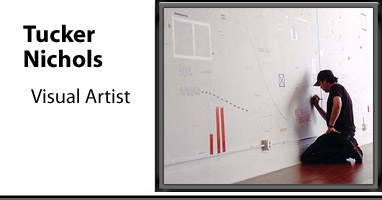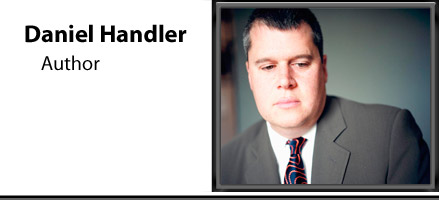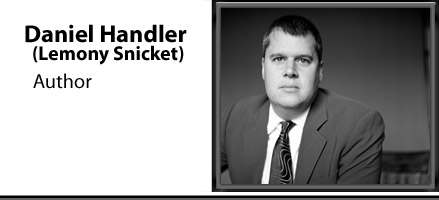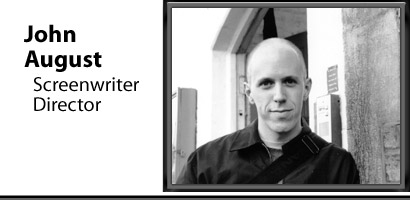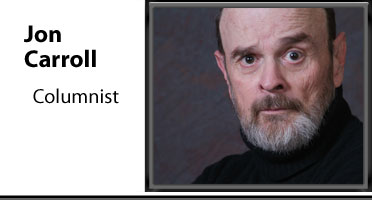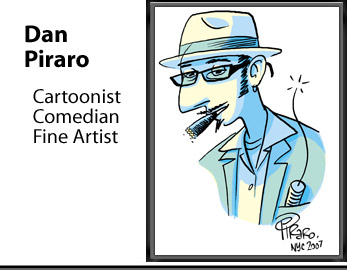
Image copyright (c) Dan Piraro 2007.
Dan Piraro’s Bizarro was first syndicated in 1985 and currently appears daily in around 250 markets on four continents. Bizarro won an unprecedented three consecutive Reuben awards from the National Cartoonist Society for “Newspaper Cartoon Panel of the Year,” in 1999, 2000, and 2001. Since 2002, Piraro has been nominated each year for their highest award, “Outstanding Cartoonist of the Year.” In 2006, Abrams Books published Bizarro and Other Strange Manifestations of the Art of Dan Piraro, a retrospective that includes cartoons, fine art, commercial illustration, and images from his sketchbooks and comedy shows.
Piraro’s one-man stage show, The Bizarro Baloney Show, is a multimedia performance featuring stand-up comedy, songs, puppets, cartoons, animation, audience participation, and onstage improv drawings. In 2002 it won “Best Solo Show” at the New York International Fringe Festival. Piraro also works as an activist for animal welfare, public health, and environmental concerns. In 2007 he became a regular contributor to Veg News Magazine, with a monthly humor article on vegetarianism, veganism, and animal rights. He lives in Brooklyn, New York, with his wife, Ashley Smith, a full-time animal welfare activist. They both sit on the board of Woodstock Farm Animal Sanctuary in Woodstock, NY. (woodstocksanctuary.org)
Dan Piraro on the Web: bizarro.com, fine art gallery, Bizarro and Other Strange Manifestations of the Art of Dan Piraro
Cecil Vortex: What do you think is the key to good cartoon writing?
Dan Piraro: I have this ongoing effort to create humor in fewer words because I’m very wordy. I always have been. I was that way in school. When a teacher would say to write a 500-word paper about something or other, I would write 750 just because I’m a wordy person. So something that I’ve done over the years, especially in recent years, is try to reduce the number of words in my cartoons just because I think it’s funnier to say things simply and quickly than to over explain. But my cartoons still tend to be pretty wordy.
One of my favorite cartoonists in the world is Sam Gross. He’s most notable from the New Yorker magazine. His work is just fantastic and he rarely uses words. And when he does, it’s almost never more than three or four. I’d love to be able to do that, but it’s just not the way I think.
CV: There’s some kind of irony in somebody who feels they write too much creating a single-panel comic.
Read more

